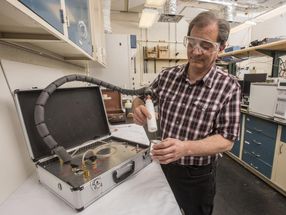4-Antibody AG Forms Multi-target Oncology Research and Development Alliance with the Ludwig Institute
4-Antibody AG announced the signing of a multi-target research alliance with the Ludwig Institute for cancer Research (LICR). Under the terms of the deal, the focus of the research and clinical development alliance will be on a series of molecular targets which are important in the suppression of the immune response in cancer. Financial details were not disclosed.
4-Antibody will use its high throughput Retrocyte Display® technology platform to generate and produce fully human therapeutic antibodies against a series of disease targets with key roles in the suppression of immune responses in cancer patients. The Ludwig Institute will then take these antibody drugs into early clinical testing with the specific clinical goal of demonstrating the feasibility of reversing immunosuppression in cancer. At the point at which the programmes have achieved agreed technical milestones, 4-Antibody will seek pharmaceutical partnerships for the emerging product opportunities.
Dr Robert Burns, CEO of 4-Antibody, commented: “For nearly three decades the Ludwig Institute has focused its worldwide clinical research efforts in cancer immunology and has built an extraordinary expertise in the monitoring of patient immunological responses in cancer immunotherapy settings. The concept of reversing tolerance in cancer has been clinically validated with the recent approval of an anti-CTLA4 antibody. We intend to target parallel pathways in our programme with LICR through its research branch at the Memorial Sloan Kettering Cancer Center in New York where we expect eventual clinical trials to take place.”
Andrew Simpson, PhD, LICR’s Scientific Director, added: “The Ludwig Institute has a long history of conducting innovative clinical research in the field of cancer immunotherapy. The combination of 4-Antibody’s high throughput Retrocyte Display® technology and its ability to rapidly generate panels of novel fully human full length therapeutic antibodies will speed our research into the identification of clinical strategies to selective interfere with the immunomodulatory mechanisms that lie at the heart of tumours’ ability to evade otherwise effective immune responses – a major goal for the improved treatment of cancer.”
Other news from the department science
Most read news
More news from our other portals
See the theme worlds for related content
Topic world Antibodies
Antibodies are specialized molecules of our immune system that can specifically recognize and neutralize pathogens or foreign substances. Antibody research in biotech and pharma has recognized this natural defense potential and is working intensively to make it therapeutically useful. From monoclonal antibodies used against cancer or autoimmune diseases to antibody-drug conjugates that specifically transport drugs to disease cells - the possibilities are enormous

Topic world Antibodies
Antibodies are specialized molecules of our immune system that can specifically recognize and neutralize pathogens or foreign substances. Antibody research in biotech and pharma has recognized this natural defense potential and is working intensively to make it therapeutically useful. From monoclonal antibodies used against cancer or autoimmune diseases to antibody-drug conjugates that specifically transport drugs to disease cells - the possibilities are enormous





















































